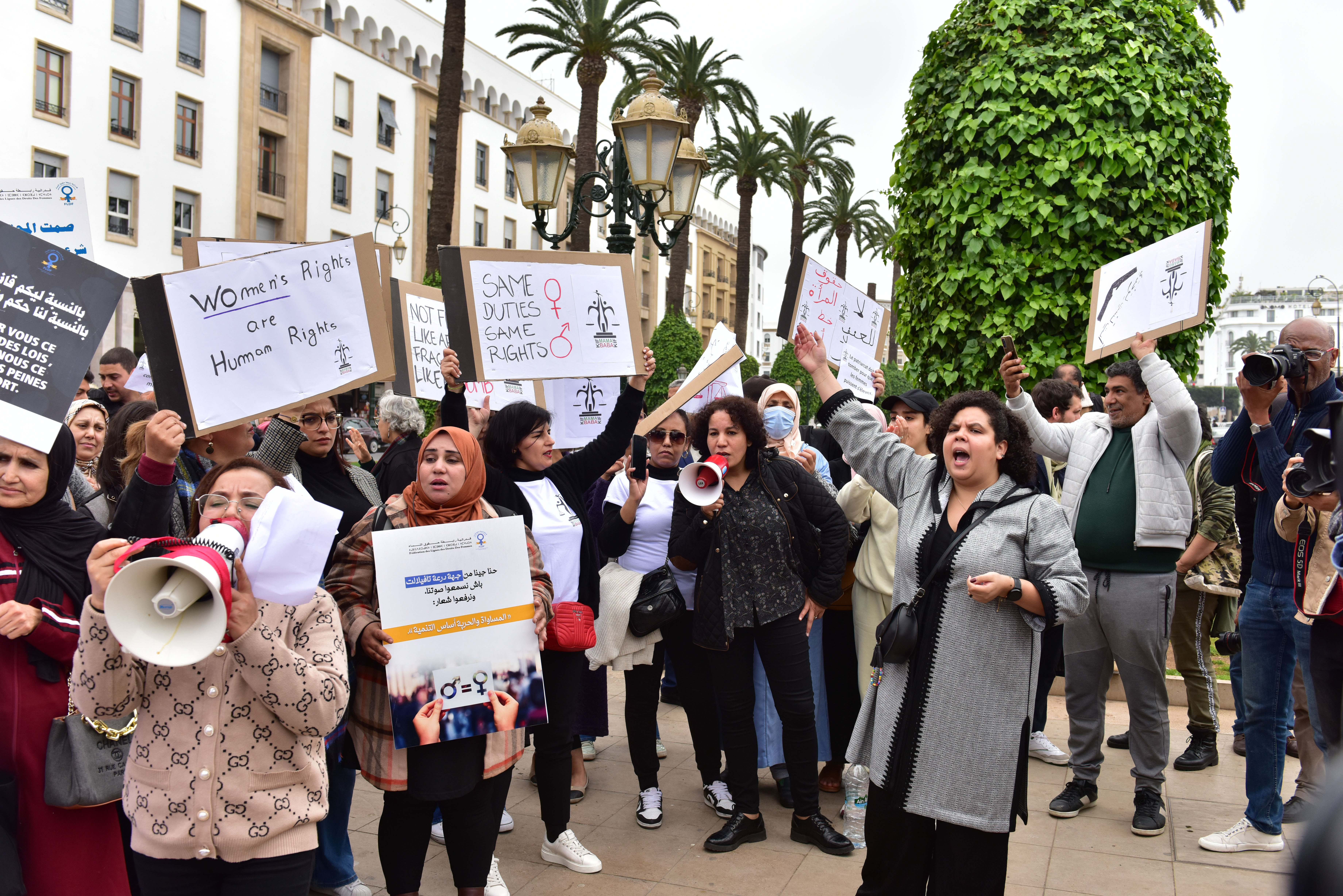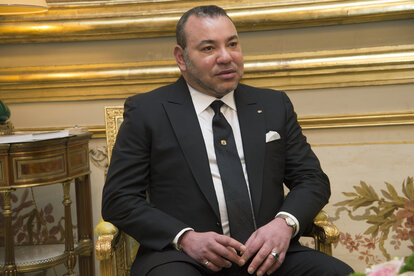Morocco
One small step for women's rights, one giant leap for Morocco

Women gather to mark the International Women's Day in Rabat, Morocco.
© picture alliance / AA | Abu Adem MuhammedMorocco is reforming its family law, the so-called Moudawana. This 400-article piece of legislation regulates the basic civil status of women in society. However, it does not only affect women, but also children and their access to civil rights.
In its current form, the family law does not meet the requirements of the progressive constitution that the country adopted in 2011. It allows child marriages and polygamy, albeit under certain conditions, stigmatises and discriminates against children born out of wedlock, blocks marriages of women with men of different religions and disadvantages widowed, divorced or single mothers and their children, who therefore often find themselves in a particularly precarious economic situation.
An almost modern country
In a regional comparison, Morocco is one of the countries with the most progressive legal systems for women. They enjoy equal access to all functions in political and economic life, at least in legal terms. Although there is anything but parity in management positions, there are numerous female CEOs, ministers and heads of authorities. A quarter of the parliament is female and a woman has just taken over the office of mayor of the capital Rabat from another woman. Women of legal age have no guardian, enjoy freedom to travel, freedom to choose their profession and can run for all political offices. These supposedly trivial rights cannot be taken for granted in the Arabic-speaking world.
In civil and criminal law, however, numerous discriminations and disadvantages against women persist, which are deeply rooted not only in the legal system but also in society. This can be exemplified by two of the currently most discussed passages of the family law - those on child marriages and inheritance rules.
Since 2004, the marriage of minors has only been permitted in exceptional cases and with judicial authorisation. In the meantime, however, the exception has become the rule. The competent judges approve the vast majority of such applications - a practice that leads to the conclusion of more than 20,000 child marriages per year. This concerns girls only since boys under 18 cannot get married. Human rights organisations have therefore long been calling for the marriage of under-18s to be banned as a matter of principle. The influential Islamist Party for Justice and Development (PJD) counters that the marriage of minors is part of the "right to start a family".
The hottest topic in the reform debate, however, is inheritance law. In Islam, women receive half of what the men entitled to inherit receive. So if a son and daughter inherit from their parents, the son receives 2/3 and the daughter 1/3 of the estate. If there are only female heirs, widows or daughters have to share the inheritance with distant male relatives of the deceased husband or father. Some women's rights organisations have long denounced this as unfair and outdated. In contrast to other rules of Moroccan family law, however, the relevant provisions can be found verbatim in the Koran. Even progressive human rights organisations therefore often shy away from demanding equal rights for women in inheritance law. In 2022, 44% of respondents in a representative survey stated that they were categorically against any changes to inheritance law. Only 36% said they could envisage changes. 20% abstained. In other words, when in doubt, the commitment to Islamic identity beats the desire for more equality.
Against this backdrop, the current revision of the Moudawana appears to be a logical step towards the social modernisation of the country or, as Samira Muheya, President of the Women's Rights Federation FLDF (Fédération des ligues des droits des femmes) puts it, an opportunity to correct "the legal injustice, discrimination and violence against women in the text of the law or in its application".
Reform from above, but participatory
Remarkably, the impetus for reform came neither from organised civil society nor - in the form of protests - from the streets, but from King Mohamed VI himself. In his capacity as political and spiritual head of state, he had already called for the principle of equality to finally be realised in a much-noticed speech in 2022, pointing out the shortcomings of the current family law. However, nothing happened as a result because the parties in the ruling coalition were too divided.

King Mohamed VI of Morocco.
© picture alliance / abaca | PoolSo last autumn, the monarch repeated his demand and set the prime minister a deadline. At the end of last week, a commission made up of representatives from various ministries and religious bodies had to submit a reform proposal for the Moudawana. This will be assessed by the king and returned to the prime minister. However, the public will only find out about this proposal when the prime minister submits it, presumably in a modified form, to parliament for approval. It is not yet clear when this will happen. And so the country is simply continuing the six-month-long debates on the determination of paternity, the allocation of custody and the inheritance rights of daughters, always assuming that the king will continue to listen and allow himself to be influenced by the development of social sentiment.
According to the king's wishes, the path to the new Moudawana should be explicitly participatory. Over the past few months, hundreds of civil society organisations have approached the Commission with their petitions and recommendations, and some of them, including partner organisations of the Foundation for Freedom, have been able to present their positions in person during consultations. On the one side of the discourse are conservative and religious forces that see the country's Islamic identity at risk. On the other side, progressive and liberal organisations demand that the current law should no longer lag behind social realities.
Democracy à la marocaine
King Mohammed VI, generally recognised as an authority in the country, remained vague in his groundbreaking speech in 2022 and even contradicted himself in key passages. On the one hand, he recalled the principle of parity enshrined in the constitution, but on the other he warned that he "cannot allow what God has forbidden" - presumably a reference to the discrimination against women in inheritance law enshrined in the Koran.
So what does the king want? A fundamental reform or just a few cosmetic adjustments? Many Moroccans have different interpretations of this - or take the opportunity to simply read their own opinions into the king's words. This could even be in the interests of the monarch, who must try to find a solution that is acceptable to the majority of his people. This is nothing less than a balancing act for a country in which women already make up the majority of university students, have extramarital affairs and abortions (both of which are actually criminal offences) and are married off as children, are not allowed to go to school and follow the orders of their father, brother or husband for the rest of their lives.
Open outcome
It is difficult to predict what solution King Mohammed VI will present and what reactions he will reap from the people. Will the mountain labour and bring forth a mouse, as some human rights activists fear? Or will there be a radical modernisation of the family law, which would inevitably send a signal to other countries in the region?
Whatever the outcome, the reform process and the accompanying social debate in Morocco are remarkable and testify to the country's sincere desire to continue its extraordinarily successful development of recent years, not only economically but also socially.
